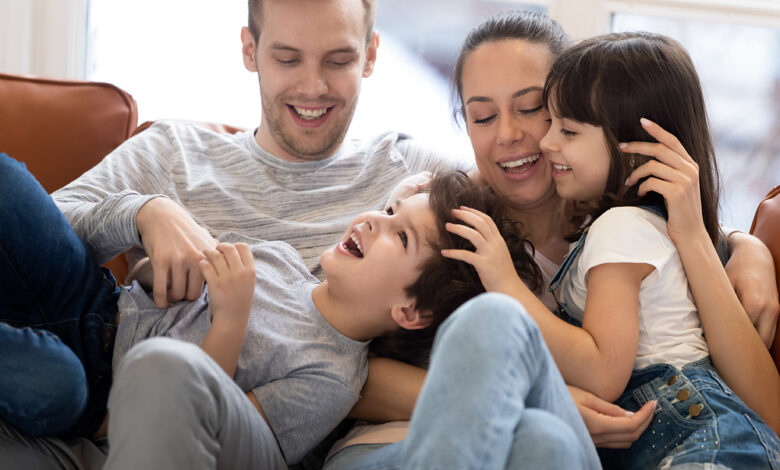
Parenting in modern America has changed a lot over time. Thanks to new research and changing social views, parents use many methods to raise their kids well. This article will cover authoritative, permissive, and authoritarian parenting. We’ll look at the good and bad of each style to help you choose what’s best for your family.
Key Takeaways
- Understanding different parenting styles is crucial for effective child rearing.
- Authoritative parenting is widely regarded as the most beneficial approach.
- Permissive parenting may lead to challenges due to lack of structure.
- Authoritarian parenting is less common in contemporary settings.
- Recognizing the pros and cons of various styles aids in making informed parenting decisions.
The Evolution of Parenting Styles
Parenting styles in America have changed a lot over time. From strict obedience to more flexible ways, these changes show how society has evolved. Looking at the history helps us see how these styles came about and how they affect how we raise our kids today.
Historical Context of Parenting in America
In the past, American parents followed strict rules and had high expectations. Families were often very structured, focusing more on discipline than feelings. This method didn’t allow for much flexibility, ignoring the need for emotional connection with kids. As we learned more about child development and psychology, parents started to change, focusing more on caring for their children’s feelings and needs.
Shifts in Parenting Attitudes Over Time
Parenting has changed a lot, thanks to new cultural and social ideas. Research in child development and psychology has given parents new ways to care for their kids. Now, parents value emotional support and open talks with their children. They also recognize each child’s unique personality, giving them more freedom to make choices and share their thoughts. This change moves away from strict parenting, creating a better environment for both parents and kids.

| Time Period | Parenting Style | Characteristics |
|---|---|---|
| 1900s | Authoritarian | Strict rules, high expectations, limited emotional engagement |
| 1950s | Traditional | Defined roles, emphasis on discipline, nuclear family structure |
| 1980s | Permissive | Flexible rules, focus on emotional support, greater freedom |
| 2000s | Authoritative | Balanced approach, open dialogue, nurturing environment |
Authoritative Parenting: The Leading Style
Authoritative parenting is now the top choice for raising kids in the U.S. It mixes strict rules with emotional support. This creates a caring place for kids to grow. Parents who use this method set clear rules but also talk openly with their kids.
Characteristics of Authoritative Parenting
Authoritative parenting stands out because of its unique traits. These include:
- Strong communication: Parents talk a lot with their kids, letting them share their feelings and thoughts.
- High expectations: Parents set standards that help kids become independent and responsible.
- Emotional support: Kids feel loved and secure because parents show them warmth and care.
- Consistent discipline: Rules are fair and predictable, teaching kids right from wrong without being too strict.
Benefits for Children Raised with Authoritative Styles
Kids who grow up with authoritative parenting do well in many ways. Studies show they often have:
| Benefit | Description |
|---|---|
| Higher self-esteem | Children feel important and understood, which helps them feel good about themselves. |
| Emotional regulation | Parents help kids learn to handle their feelings well. |
| Improved social skills | Talking often with parents helps kids become more empathetic and good at communicating. |
| Academic success | This parenting style is linked to better school performance. |
Permissive Parenting: Understanding Its Impact
Permissive parenting means parents give lots of emotional support but don’t set many rules. They believe letting kids be independent and creative is key. But, this style of parenting has its ups and downs, especially when it comes to discipline and structure.
Details on Permissive Parenting Traits
Key traits of permissive parenting include:
- High levels of emotional support.
- Leniency in rule-setting.
- Avoidance of confrontations with children.
- A focus on fulfilling children’s immediate desires.
This approach can make for a caring home. But, it might make it hard for kids to understand rules and respect authority. This could lead to problems later in life.
Concerns Surrounding Lack of Structure
One big worry with permissive parenting is the lack of rules. Without clear limits, kids might struggle with important skills like self-control and making choices. Critics say this style often leads to:
- Challenges in decision-making abilities.
- A higher likelihood of engaging in risky behaviors.
- Potential issues with peer relationships due to difficulty with authority.
In summary, permissive parenting tries to be supportive. But, without the right boundaries, it can affect a child’s growth in big ways.
Authoritarian Parenting: A Less Common Approach
Authoritarian parenting is a strict way of parenting. It focuses on obedience and uses punishment for misbehavior. Let’s look into what this style means, its immediate effects, and its long-term results.
Defining Authoritarian Parenting
This parenting style is very structured and strict. It’s different from being permissive or authoritative. Parents set strict rules and don’t really talk or connect with their kids. This makes kids feel they must obey without questioning, leading to fear instead of understanding.
Short-term Effects vs. Long-term Outcomes
At first, kids from authoritarian homes do well in school because of strict rules. They learn to follow rules closely, which helps them do well. But, these benefits don’t last long.
Over time, kids may face big challenges. They might struggle with feeling good about themselves, making friends, and understanding their feelings. They could also feel more anxious and depressed, making it hard to form good relationships and handle changes in life.
| Aspect | Short-term Effects | Long-term Outcomes |
|---|---|---|
| Compliance | High compliance with rules | Difficulty in making independent decisions |
| Academic Performance | Improvement in grades | Struggles with motivation and creativity |
| Emotional Development | Limited emotional expression | Increased anxiety and lower self-esteem |
| Social Skills | Adherence to social norms | Challenges in building healthy relationships |
Exploring Other Parenting Styles
Parenting is always changing, and many families are looking at new ways to raise their kids. Two styles that have caught a lot of attention are attachment parenting and helicopter parenting. Each style has its own benefits and challenges, affecting a child’s growth in different ways.
Attachment Parenting and Its Influence
Attachment parenting aims to build a strong emotional connection between parents and kids. It uses methods like co-sleeping and breastfeeding for longer periods. These actions help create a secure and loving bond. But, some worry that it might make kids too dependent as they grow and want to be independent.
Helicopter Parenting: Pros and Cons
Helicopter parenting means keeping a close eye on a child’s life. Parents do this to shield their kids from failure or danger. It can make kids feel safe and supported. Yet, it might stop them from learning to solve problems on their own and building confidence, which can affect their future relationships and independence.
| Parenting Style | Key Features | Pros | Cons |
|---|---|---|---|
| Attachment Parenting | Responsive care, co-sleeping, extended breastfeeding | Strong emotional bond, increased security | Potential for dependency |
| Helicopter Parenting | Close monitoring, high involvement in activities | Increased safety, emotional support | Reduced independence, hindered problem-solving skills |
Looking into these parenting styles helps families pick what’s best for them. Each method shows how it can affect a child’s growth and independence.
Conclusion
Today, we see many parenting styles that reflect changing values and family needs. Authoritative parenting is often seen as the best way to balance giving kids freedom and setting rules. This method helps build a strong bond between parents and kids. It also helps kids behave well and bounce back from tough times.
Parents should be ready to change their ways to fit what their kids need. Every family is different, and knowing about various parenting styles helps parents make a supportive home. This way, kids grow up healthy, emotionally strong, and ready for success.
As parenting changes, keeping up with new ways of parenting helps families do what’s best for their kids. The aim is to make a place where kids can grow, learn, and become successful. This is what all caring parents hope for.
FAQ
What are the main parenting styles recognized today?
Today, we recognize four main parenting styles: authoritative, permissive, authoritarian, and uninvolved. Each style affects children differently.
What is authoritative parenting?
Authoritative parenting mixes clear rules with warmth and support. It helps kids become independent and responsible through open talks.
How does permissive parenting differ from authoritative parenting?
Permissive parenting offers lots of emotional support but few rules. This can lead to poor discipline. Authoritative parenting, on the other hand, sets clear rules and supports emotionally, promoting healthy growth.
What are the potential effects of authoritarian parenting?
Authoritarian parents set strict rules and don’t show much emotion. This can make kids obey but might harm their self-esteem, social skills, and mental health.
What is attachment parenting?
Attachment parenting aims for a deep emotional connection with kids through practices like co-sleeping and extended breastfeeding. It helps with closeness but can make some kids too dependent.
Can you explain helicopter parenting?
Helicopter parents watch over their kids a lot, trying to help with everything. This can stop kids from growing independent and solving problems on their own, hurting their confidence.
What are the benefits of authoritative parenting?
Kids with authoritative parents tend to have high self-esteem and manage emotions well. They also do better in school and life, thanks to this parenting style.
Are there any downsides to permissive parenting?
Yes, permissive parenting can boost creativity and freedom. But, it can also make kids struggle with making decisions and controlling themselves.




